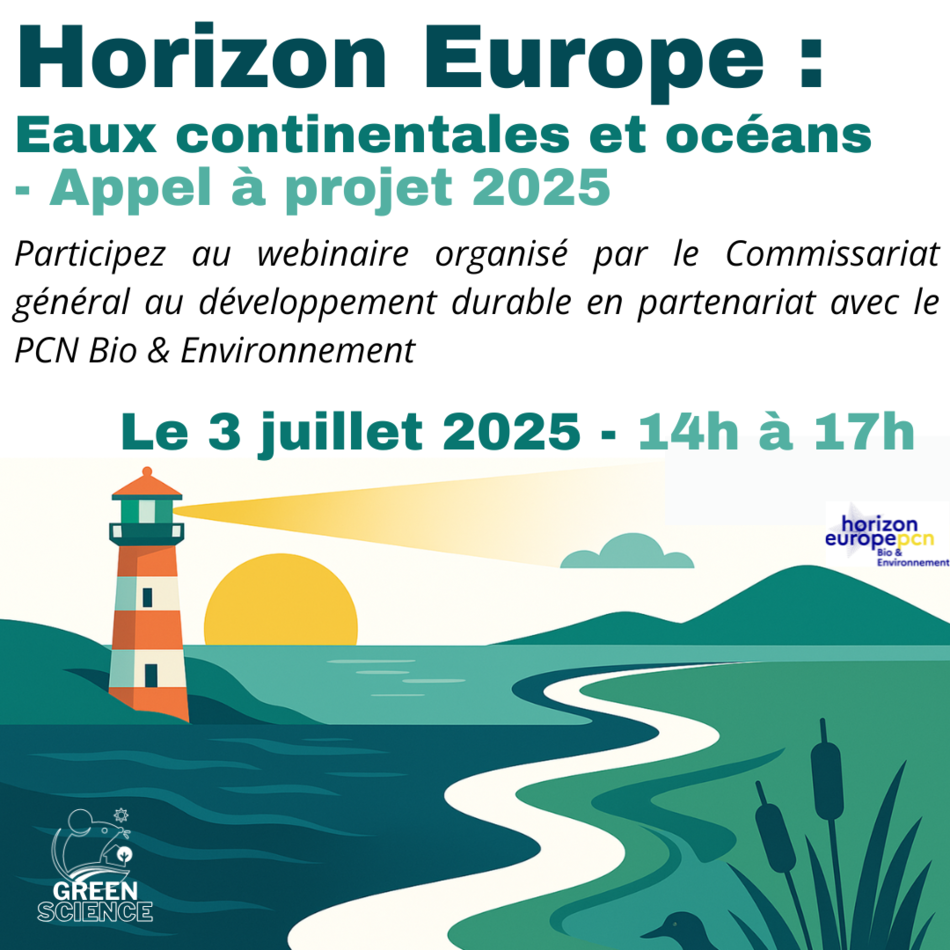ExpectedOutcome:
In support of the European Green Deal and EU water-related policies, successful proposals will contribute to innovative governance and sound decision making in water policy, in particular Destination ‘Innovative governance, environmental observations and digital solutions in support of the Green Deal’s impact “Innovative governance models enabling sustainability and resilience notably to achieve better informed decision-making processes, social engagement and innovation”.
Projects results are expected to contribute to all of the following expected outcomes:
- Improve policy implementation for securing sustainable water use across sectors, while insuring transparency and inclusiveness
- Promote a better integrated planning approach across water-using sectors
- Help to link water management to the economic and social development sectors.
- Support coordination between water policies and other relevant policies and coordination of planning measures across relevant EU and national instruments for sustainable water use
- Empower citizens by increasing their motivation and capacity to influence effective water governance decisions.
- Help society to implement through governance, the technological, economic, political, and social measures that will set a course toward the achievement of a desirable, more sustainable and secure water future.
- Support the implementation of the European Green Deal and the Sustainable Development Goals, notably SDG 6 “Ensure availability and sustainable management of water and sanitation for all”
Scope:
Changing the way water is used, managed and shared with people, our environment and our economy, addressing trade-offs and ensuring policy coherence, and helping shape the appropriate institutional environment to deal with the complexity of multiple water challenges and the design of the water systems of the future, requires effective development and implementation of sound water management and governance strategies. The governance and institutional set up must be designed to respect the needs of the natural aquatic environment in terms of water quantity (water allocation) and quality, reconcile the competing demands of the economy over water resources and drive the transition in water using sectors towards operation within the sustainability limits.
Water problems are commonly the results of governance problems. Technical solutions often exist, but clarity is often lacking as to who does what, at which level and how. Implementing appropriate governance schemes or designing new multi-level governance and institutional settings for the implementation of sound water management, will help to achieve sustainable use of natural resources, as well as prevent pollution and protect biodiversity.
This topic aims to validate innovative multi-level water governance practices among various stakeholders to strengthen policy integration, coherence and coordination and assess their impacts on economy, social well-being and environment.
Actions should assess current governance approaches and organisational models in different river basins to optimise water governance and integrate it with other sectors, such as energy, agriculture, land use and urbanisation, and to overcome fragmentation in public policy formulation and decision-making. They should also aim to understand how different operational governance contexts at various levels, influence the effective realisation of sustainable water management in practice and explore the interaction among governance approaches at different spatial and temporal scales with a view to understanding potential conflicts and strengthening synergies.
Research should also address ways to value water and develop appropriate tariffs and pricing policies to ensure both access to water and sufficient funds for systematic renewal of water service infrastructure, as well as ecosystems restoration.
Innovative mechanisms should be developed to promote stakeholder engagement and involvement of public participation in defining and developing methods for collaborative approaches, as well as to promote social innovation, effective communication platforms, encourage exchange of know-how, expertise, eliminate frustration, minimize risks of distortion, and increase citizens’ responsibility.
The role of appropriate economic policy instruments, financing and business models (investments, risk management, water pricing, cost-benefits…) in governance towards ensuring long term financial sustainability and increasing investments in the water sector, should be also assessed.
Actions to effectively implement appropriate governance approaches in practice, taking into consideration research insights, and to support the implementation of relevant governance indicators, such as, those developed by OECD, including the assessment of their performance, should be also supported.
In general, the participation of academia, research organisations, utilities, industry and regulators is strongly advised, as well as civil society engagement whenever necessary, also aiming to broaden the dissemination and exploitation routes and to better assess the innovation potential of developed solutions and strategies.
This topic should involve the effective contribution of SSH disciplines.
Specific Topic Conditions:
Activities are expected to achieve TRL 5 by the end of the project – see General Annex B.
Cross-cutting Priorities:
Social sciences and humanitiesSocietal Engagement





